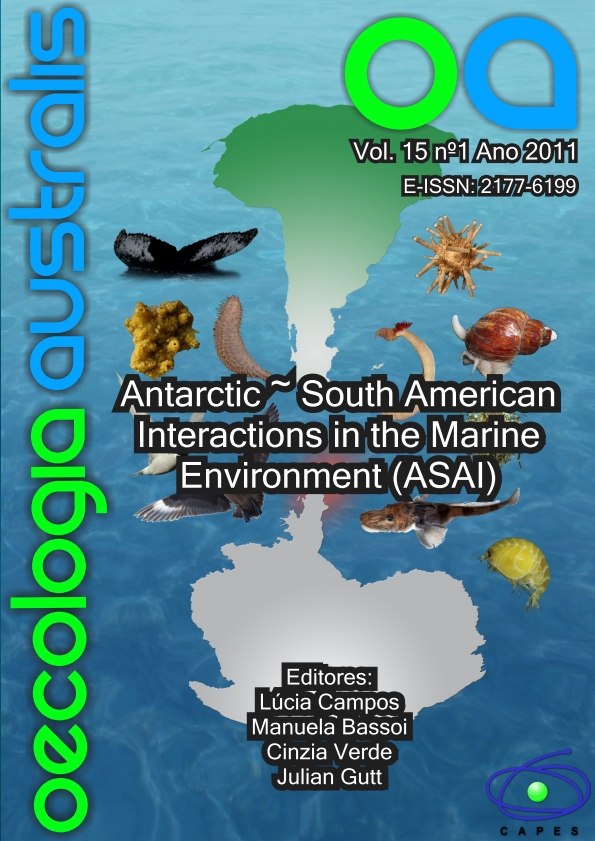EVOLUTION AND BIODIVERSITY IN THE ANTARCTIC - THE RESPONSE OF LIFE TO CHANGE (EBA): ROLE AND LEGACY
Keywords:
EBA, Adaptive evolution, Biodiversity, Climate change, Polar amplificationAbstract
The international, multi- and cross-disciplinary programme Evolution and Biodiversity in the Antarctic: the Response of Life to Change (EBA), launched by the Scientific Committee for Antarctic Research (SCAR) in 2004, covers most of Antarctic biological research in the marine, terrestrial and freshwater realms, assembling almost one hundred teams. It liaises with physical, geological and historical disciplines, because of the intimate connection between the living and abiotic environments. Cross-linkages are being established with SCAR Programmes in other disciplines. The cooperative and cross-disciplinary research of EBA is a long-term legacy, in particular for evolutionary and biodiversity information. EBA has direct relevance to Global Change, because it addresses the impacts of the latter on biodiversity, evolutionary adaptations and community dynamics. It has been a Lead Project of the International Polar Year (IPY, 2007-9), envisaging links with the Arctic; the latter is undergoing rapid climate change, with progressive and fast decrease of sea and land ice. The responses of cold-adapted polar organisms provide information to analyse the effect of changes in general and foresee their impact at lower latitudes. EBA had been approved by SCAR until 2013; in 2009, the EBA community began planning its future. Cross-disciplinary science must be retained, but the EBA wide umbrella must be replaced by a more focussed approach. Antarctic research is expensive, and must be excellent, relevant, multi-national and well planned. The Peninsula and the sub-Antarctic islands are very important areas. The relationship between South America and Antarctica and their mutual influence must be considered. Climate change and its effects on biological systems and biodiversity in a changing environment are two major multi-disciplinary themes that may develop into new SCAR programmes. In the 2010 SCAR Meeting, the proposal of two distinct but complementary Science Programmes was brought to the attention of the Delegates, who agreed on further action along these lines.Downloads
Additional Files
Published
2017-02-20


